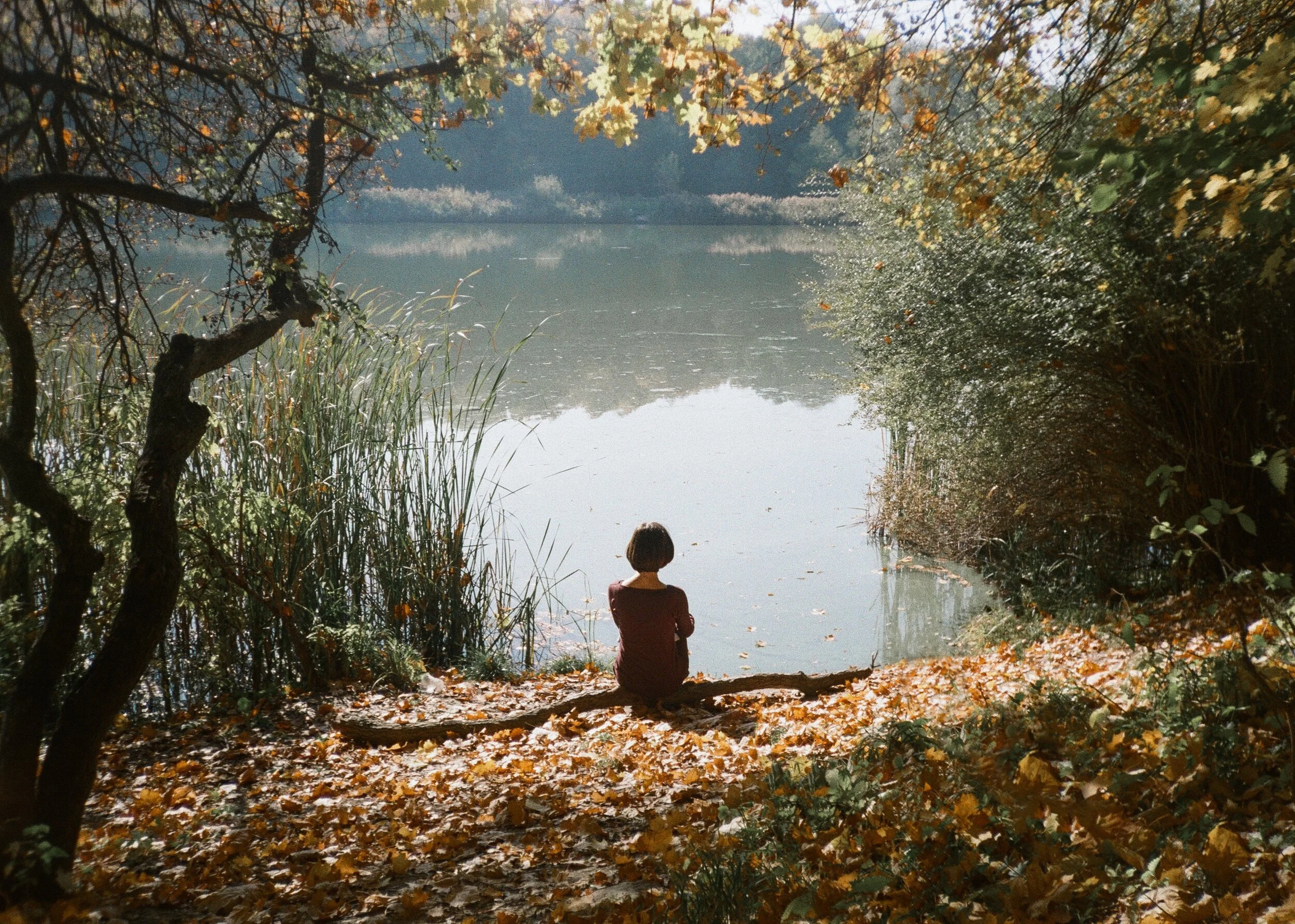My Essential Loneliness
"Loneliness can be conquered only by those who can bear solitude."
-Paul Tillich
"You are a solitary," observed the attorney I had hired to draw up my will. She had asked me to list the family members and friends to whom I would consider leaving my worldly goods. Both categories were skimpy. Thus by her lights, my very small circle of significant people in my life qualified me as a "solitary," which would present not a small challenge in disposing of those aforementioned possessions.
My attorney's astute summation was on the money. (And, by the way, it costs some serious money to have a will drawn up.) She had discerned the telltale signs of my alone-ness, the distinguishing marks of someone who is in the world but walks through it without benefit of other folks in tow: single, small family, small batch of friends.
Despite my parents' best efforts, it took nine years into their marriage before I finally showed up. Already slouching toward deep middle age, they decided to come to a halt after my birth, which left me an only child. For me, this was sort of like being Pig-Pen, one of my favorite characters in the comic strip "Peanuts." He was the kid who walked around swathed in a permanent, swirling haze of dust (which he proudly claimed was the "dust of ancient civilizations"). Even on those rare occasions when Pig-Pen tries to rid himself of his dusty coat, it clings to and defines him. For the only child, the ages-old perception that she's spoiled, willful, and haughty is that dust cloak à la Pig-Pen.
But perhaps the biggest piece of dust is the belief that the only child is lonely. "Aww, poor thing," people would coo mournfully to my parents when they learned that I was an only child. "An only child is a lonely child," others would say, thinking themselves clever at the rhyme they'd made. Or my favorite: "An only child is no child." Gee, thanks a lot.
There were neighborhood kids and schoolmates who became my playmates with whom I spent endless hours getting my Barbie and Ken dolls to make out, rolling the dice in high-stakes Monopoly games, and holding fierce, double-Dutch competitions. These ebullient get-togethers made me feel deeply connected to my peers and helped to erase the stinging stigma of being an only child.
When friends were otherwise engaged, I spent time with my parents. We got along well and enjoyed being with each other. Once I reached the age where I could interact more comfortably with them, there was always something enjoyable or interesting to do, such as helping my father in the kitchen garden or learning to cook simple dishes with my mother (especially peach cobbler pie). But my parents also had the presence of mind to recognize that, either because of or despite the fact that I was an only child, I needed to cultivate my own interests, which seemed to bend toward reading, music, and the visual arts. Books, paint sets, and simple musical instruments shared space with my dolls and games, filling my hours of solitude with creative activities.
The only child of British Guyanese immigrants, I grew up hearing my parents' distinctive, "old country" lilt, which marked them as "other" to the ears of their native-born neighbors. My speech pattern and accent (along with left-handedness and favoring classical music), although fainter reflections of my parents', set me apart at school. What I felt as a result of being looked upon as an oddity was no longer my freely chosen solitariness, but instead the stiff chill of rejection that imparts loneliness.
As I grew older, I discerned a tendency toward inwardness and introspection. Although capable of sociability, I preferred being alone. Like the great 18th-century English historian, Edward Gibbon, known to his peers for his pursuit of solitude, and who had unabashedly admitted, "I was never less alone than when by myself," I cultivated a quasi-hermetic existence. My professional life (I am a retired teacher) and my other involvements stood in contrast to my private tendencies, thrusting me, as they did, into the company of other human beings.
I am a good actress to such a degree that I can hold my own in such settings. But when I do not feel up to the task, I fold in on myself, leaving it to others to carry on. And there are few heavier veils of loneliness than when I have entered a room and realized I was the only one of something: the only woman, the only African American, the only one without a "significant other."
Solitude and loneliness are frequently confused in our culture, but they are separate and distinct conditions. Over the years, I have realized that I inhabit both worlds in that I am a solitary who experiences frequent bouts of loneliness. Solitude is what I choose of my own volition, the state of being where I am most content. In solitude, my sense of self-worth is intact, and I am fulfilled. If my solitude is wrapped in silence, it does not threaten me or cause pain. It is a balm and a comfort, the place where I can cultivate my creativity and be at peace.
When I'm beset by loneliness, dust-bunnies multiply, and Pisa-like towers of dirty dishes rise in the sink. I dress like a bum and couldn't care less what I eat. Couples, be they happy-looking or not, are on the business end of my smoldering jealousy. Although I know I exist, loneliness makes me feel erased and invisible. And everything that is wrong and misshapen about the world is magnified, causing me to question whether any of it is meaningful.
But I have learned ways of coping with these dark episodes, the first of which was labeling it as I saw it, acknowledging that loneliness is palpably real. It is a heavy weight the spirit carries, insistently pulling me ever earthward, and denying me a lightness I imagine everyone else enjoys.
Loneliness also affords the opportunity to hunt down sources of joy and delight. I have always sought refuge in music, seeing it as a domain of beauty and grace. In concert halls, surrounded by others who are also seeking to enter a world of splendid sounds, I recall the words of Maya Angelou, who said she would "crawl into the space between the notes and curl [her] back to loneliness." Nearly five years ago, I began learning classical guitar (the perfect instrument for solitary people). Its soft and comforting tonalities speak to and soothe my loneliness. Museums and galleries are also my hiding places, and their statues, portraits, and myriad objects always silently welcome me and never ask, "What, all alone?"
Reading is another powerful life raft I climb upon when loneliness becomes too hard to handle. "One of the things reading does," observed writer Jamaica Kincaid, "it makes your loneliness manageable if you are an essentially lonely person." I underscore "essentially," for this is the word that holds the true nature of my loneliness: that it is an essential aspect of my self. Friends and social involvements notwithstanding, loneliness is the essential trait of my existence.
Having been a language teacher for nearly three decades, I trafficked in words and the thoughts and ideas they convey. Now in retirement, I still deal with words and struggle, as a freelance writer, with how to get them to do my bidding. Writing is a lonely occupation, well-suited to one who finds no greater pleasure than to sit before the blank screen and pit her wiles against an army of words.
For many years, I have spent a week during the summer in silent retreat at Holy Cross Monastery in New York's Hudson River Valley. Holy Cross, run by the Order of Saint Benedict, offers a large and commodious guest house for those seeking a place for reflection, prayer, meditation, or just a respite from the incessant din and activity of modern life. Surrounded by acres of trees, looking out on the Hudson River and the Palisades, the monastery's setting is tailor-made for the solitary and the lonely. There, being solitary or lonely is accepted and validated, because they are understood as part of the human condition. In that beautiful place, I am always reminded that the human journey is essentially a lonely one.
I have found, however, that the most effective and reliable antidote to loneliness lies in helping or serving others in some way. Loneliness can be a carapace under which one shuts away from the world and where one focuses only on the self. While I embrace my loneliness, I am mindful to never allow it to dominate my life to the point where my life is put in any kind of danger. Doing something good and kind for others, however small, helps me to stay connected to my fellow earth-walkers. I want my loneliness to be a source of generosity rather than of self-indulgence.
Despite its inherent difficulties, loneliness has been one of my best teachers. It has taught me humility, that hard-won trait that keeps me in check and that reminds me of my shortcomings. I have learned about and reflected on loss and disappointment, as well as on the
need to be patient with myself and with others. Loneliness is always where my hardest and most important interior renovating takes place.
The German-American theologian Paul Tillich observed that "Loneliness expresses the pain of being alone, and solitude expresses the glory of being alone." Reflecting on these words, I can live without fear of loneliness and without despair of being alone, because I gain so much from both.
-Pamela Lewis
A lifelong resident of Queens, New York, Pamela A. Lewis is a graduate of New York University and a retired French teacher. She writes regularly for The Episcopal New Yorker, Episcopal Journal, and The Living Church.

















